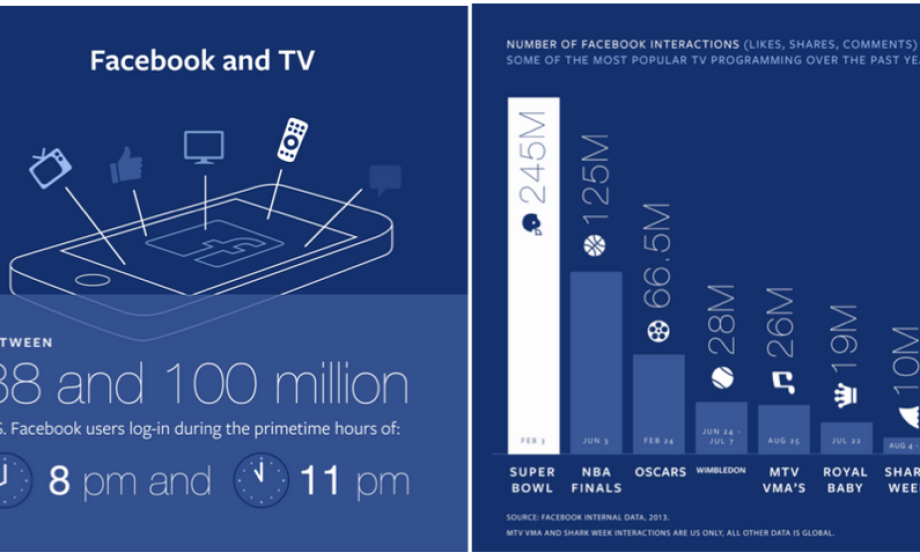
This week during MIPCOM, an entertainment & content industry event organized by Reed Midem (which purchased LeWeb last year), Facebook announced a partnership with TF1 & Canal+, respectively the largest free & paid-access TV groups in the French market, which will provide the TV stations access to Facebook’s new Keyword Insights API.
The tool, which has only been announced earlier this month, with early users including CNN, NBC, Sky TV, The Guardian & BuzzFeed (source: TheVerge), allows content producers to gauge the number of interactions around a certain topic – say, a TV show, or a half-naked 20-something at a music awards show – without getting direct access at personal info of any one user (i.e: anonymity rests entact). The partnership with Canal+ & TF1 will allow the TV stations to track how many conversations are happening around the groups’ shows, as well as allow them to use conversations on Facebook to gauge public opinion on topics such as proposed legislation (see more on AllFacebook).
To date, Facebook counts 1,15 Billion users, with 26 Million users in France (that’s nearly 50% of the population). According to a recent study by Orange & Terrefina, 52% of French people comment about TV shows on the Internet, and, of those, 71% do it on Facebook.
Destabilizing Twitter’s IPO
With Twitter’s recently announced IPO & all the scrutiny from analysts that goes with it, this very active attempt to disrupt Twitter’s long-standing default stance as the go-to second screen app may pose a major problem for Twitter. Due to the very public visibility of tweets, It has always been accepted more or less that Twitter was where people were going to to talk about TV (and everything else); however, with Facebook partnering up with major TV channels (something Twitter has not yet got around to), this may represent another nail in coffin for its multi-billion dollar IPO dreams.
It may not come as a surprise to most people that TV viewers and internauts in general prefer to share their opinions with their close social circle of friends (on Facebook), as opposed to shouting them into the abyss (on Twitter). Twitter’s recently come under scrutiny over everything from its abandoned accounts problem to its unfiltered news feed, all problems Facebook has already worked out on its own. Facebook has even made recent foyers into the “reach the mass public” avenue through the implementation of Twitter-esque hashtags, though the lack of immediate adoption suggests that Facebook users don’t necessarily want to communicate publicly as they do on Twitter.
Facebook has also partnered with ARD, ZDF & ProSiebenSat.1 (in Germany), Channel 4 (in the UK) and Danish Television, as well as in South America (EsporteIntertivo in Brazil), Canada (CBC), India (Star networks) as well as Discovery International (Worldwide).

